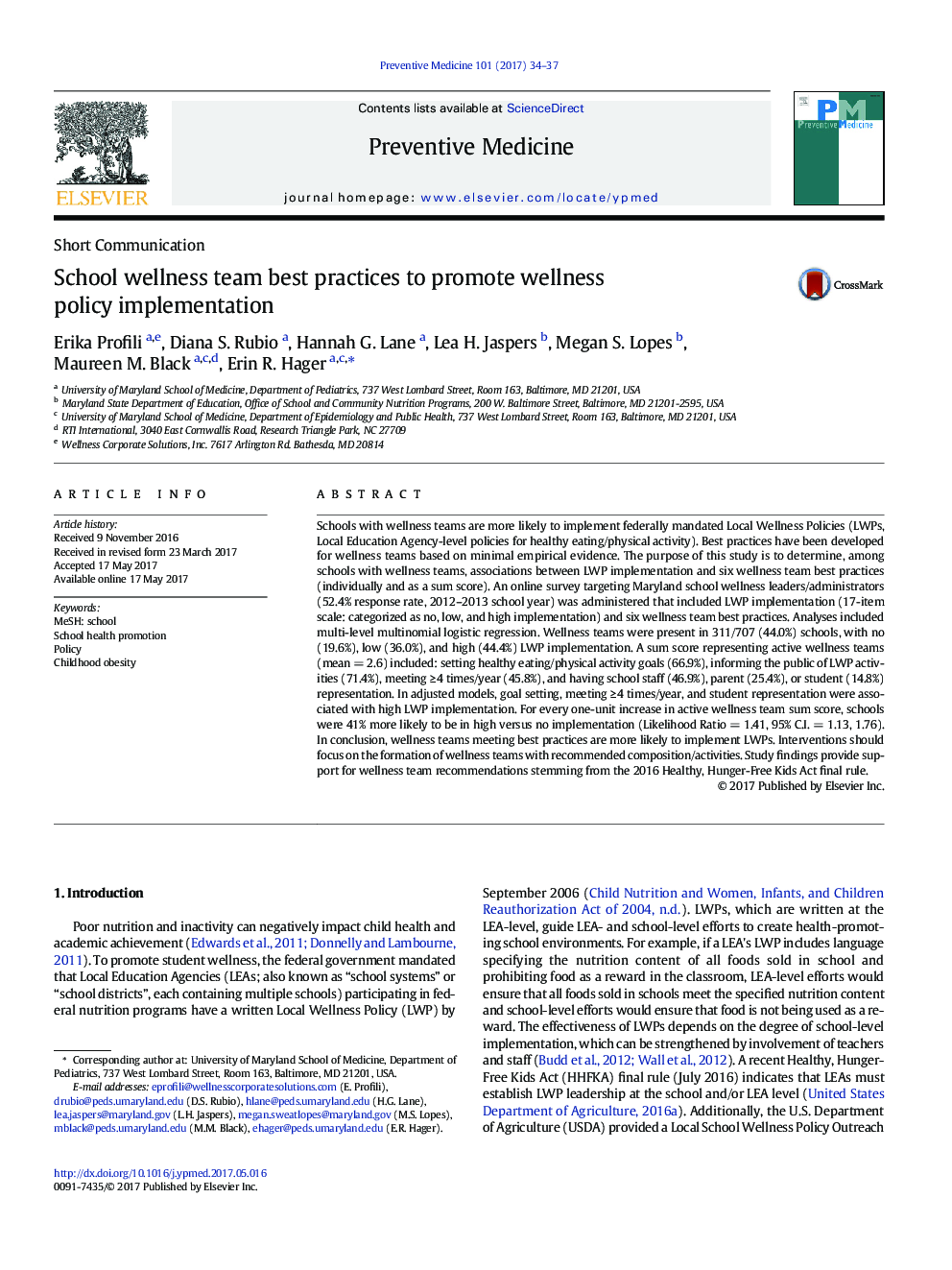| Article ID | Journal | Published Year | Pages | File Type |
|---|---|---|---|---|
| 5635537 | Preventive Medicine | 2017 | 4 Pages |
â¢When school wellness team met best practices, schools better-implement LWPs.â¢Key best practices: goal setting, meet â¥Â 4 times/year, student representationâ¢Supports recent federal policy regarding wellness policy implementation in schools
Schools with wellness teams are more likely to implement federally mandated Local Wellness Policies (LWPs, Local Education Agency-level policies for healthy eating/physical activity). Best practices have been developed for wellness teams based on minimal empirical evidence. The purpose of this study is to determine, among schools with wellness teams, associations between LWP implementation and six wellness team best practices (individually and as a sum score). An online survey targeting Maryland school wellness leaders/administrators (52.4% response rate, 2012-2013 school year) was administered that included LWP implementation (17-item scale: categorized as no, low, and high implementation) and six wellness team best practices. Analyses included multi-level multinomial logistic regression. Wellness teams were present in 311/707 (44.0%) schools, with no (19.6%), low (36.0%), and high (44.4%) LWP implementation. A sum score representing active wellness teams (mean = 2.6) included: setting healthy eating/physical activity goals (66.9%), informing the public of LWP activities (71.4%), meeting â¥Â 4 times/year (45.8%), and having school staff (46.9%), parent (25.4%), or student (14.8%) representation. In adjusted models, goal setting, meeting â¥Â 4 times/year, and student representation were associated with high LWP implementation. For every one-unit increase in active wellness team sum score, schools were 41% more likely to be in high versus no implementation (Likelihood Ratio = 1.41, 95% C.I. = 1.13, 1.76). In conclusion, wellness teams meeting best practices are more likely to implement LWPs. Interventions should focus on the formation of wellness teams with recommended composition/activities. Study findings provide support for wellness team recommendations stemming from the 2016 Healthy, Hunger-Free Kids Act final rule.
